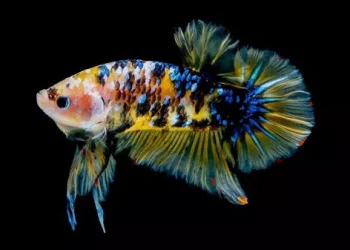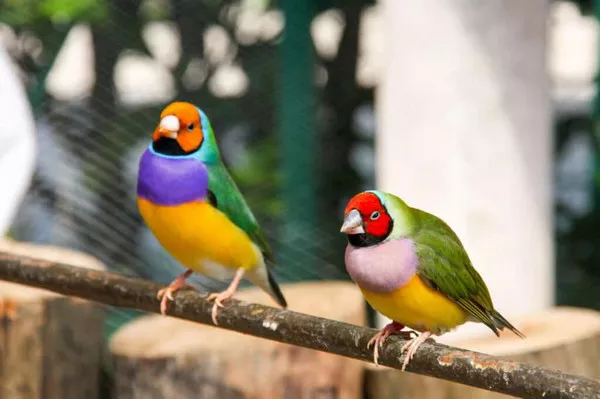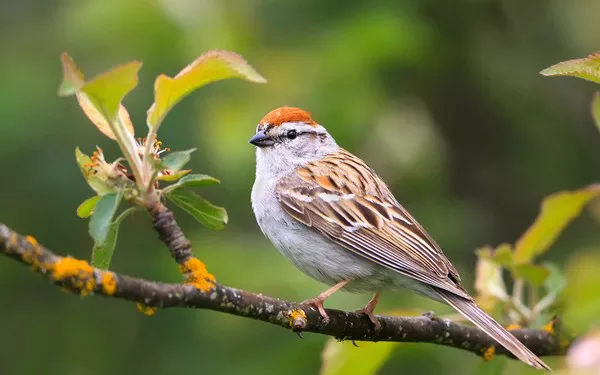Feeding betta fry, the juvenile form of the popular betta fish (Betta splendens), is crucial for their growth and development. Unlike adult bettas, which can thrive on less frequent feedings, fry require specific attention to their dietary needs, feeding frequency, and nutritional content. In this article, we will explore the feeding regimen for betta fry, the factors influencing feeding frequency, and tips for ensuring optimal health and growth.
Understanding Betta Fry Development
Life Stages of Betta Fish
Betta fry go through several life stages, each characterized by specific developmental milestones. Understanding these stages is essential for determining appropriate feeding practices.
Hatching Stage: Betta eggs hatch in approximately 24 to 36 hours post-spawning. During this stage, fry rely on their yolk sacs for nourishment.
Swim-up Stage: About three to five days after hatching, fry become free-swimming and start to seek food. This marks the beginning of their feeding journey.
Juvenile Stage: As fry grow, they develop their colors and fins. This stage can last until they reach sexual maturity, typically around four to six months.
Nutritional Needs of Betta Fry
Betta fry require a diet rich in protein and nutrients to support their rapid growth. Their nutritional needs vary as they progress through their developmental stages:
First Few Days: Initially, fry should rely on infusoria or other microscopic food sources rich in protein.
After Swim-Up: As they begin to swim, they can be introduced to finely crushed high-quality flake food or specialized fry food that contains essential nutrients.
Feeding Frequency: How Often Should You Feed Betta Fry?
Feeding frequency is a critical factor in the growth and health of betta fry. Here are some guidelines:
Early Days (0-2 Weeks)
Frequency: 4-6 times a day
Food Type: Infusoria or powdered fry food
Amount: Offer small amounts that fry can consume within a few minutes. This prevents overfeeding and water quality issues.
From 2 Weeks to 1 Month
Frequency: 3-4 times a day
Food Type: Fine-quality flake food or newly hatched brine shrimp can be introduced.
Amount: Increase the quantity slightly as fry grow but continue to monitor consumption to avoid leftovers.
From 1 Month to 3 Months
Frequency: 2-3 times a day
Food Type: Transition to more substantial foods like small pellets designed for juvenile bettas or regular brine shrimp.
Amount: Feed enough for them to finish within a few minutes but avoid overfeeding.
Beyond 3 Months
Frequency: 1-2 times a day
Food Type: Regular betta pellets or a varied diet, including frozen or freeze-dried foods.
Amount: Adjust the portion size according to their size and growth rate.
Factors Influencing Feeding Frequency
While the above guidelines provide a framework, several factors may influence how often you should feed betta fry:
Water Temperature
Water temperature plays a significant role in metabolism. Bettas thrive in temperatures between 76°F and 82°F (24°C – 28°C). Higher temperatures can increase their metabolism, necessitating more frequent feeding.
See Also: Can You Feed Betta Fish Live Food?
Fry Density
The number of fry in your aquarium affects feeding frequency. In densely populated tanks, you may need to feed more frequently to ensure all fry receive adequate nutrition. However, be cautious to prevent overfeeding, which can lead to poor water quality.
Water Quality
Maintaining excellent water quality is vital for fry health. If water quality is poor, you may need to adjust feeding practices. Frequent small feedings can be better than fewer large ones to minimize waste.
Individual Growth Rates
Each fry may grow at different rates based on genetics and health. Monitor the growth of each fry and adjust feeding frequency accordingly. Some fry may require more frequent feedings if they are slower to develop.
Type of Food
The type of food offered can also influence how often you should feed. High-quality foods are more nutritionally dense, which might reduce the number of feedings needed compared to lower-quality options.
Tips for Successful Feeding of Betta Fry
Use a Feeding Schedule: Consistency is key. Establish a routine to help ensure that fry receive their meals regularly.
Monitor Consumption: Observe how much fry are eating during each feeding. Adjust portions based on their appetite and growth.
Avoid Overfeeding: Leftover food can pollute the water and lead to health issues. Remove uneaten food promptly.
Maintain Clean Water: Regular water changes are essential. A clean environment supports healthy growth and reduces the risk of disease.
Provide a Varied Diet: Introducing different food types can ensure a balanced diet and stimulate growth. Consider offering live foods, such as daphnia or micro worms, in addition to commercial options.
Avoid Sudden Changes: Gradually introduce new foods or change feeding schedules to prevent digestive upset in fry.
Observe Behavior: Pay attention to the fry’s behavior. If they are active and swimming well, it’s a good sign that they are receiving adequate nutrition.
Common Mistakes to Avoid
Neglecting Water Quality: Poor water conditions can be detrimental to fry. Regular testing and maintenance are crucial.
Ignoring Fry Size: Fry size can vary significantly. Be mindful of size differences when offering food to ensure all fry can consume it.
Feeding Infrequently: Skipping feedings can stunt growth. Ensure that fry are fed regularly, especially during their early development.
Not Monitoring Growth: Failing to track growth can lead to improper feeding schedules. Keep records of their size and adjust feeding practices accordingly.
Relying on One Type of Food: A lack of dietary variety can lead to nutritional deficiencies. Mix up the diet for better overall health.
Conclusion
Feeding betta fry is a delicate balance that requires attention to their developmental needs, environmental factors, and dietary variety. By following a structured feeding schedule and being mindful of their growth, you can promote healthy and vibrant betta fish. Remember, the early stages of life are critical, and proper care during this period will set the foundation for a thriving adult betta.
As a dedicated aquarist, taking the time to understand and implement the best practices for feeding betta fry will not only enhance their growth but also contribute to your overall satisfaction in fishkeeping. Happy fish parenting!
Related Topics:


























